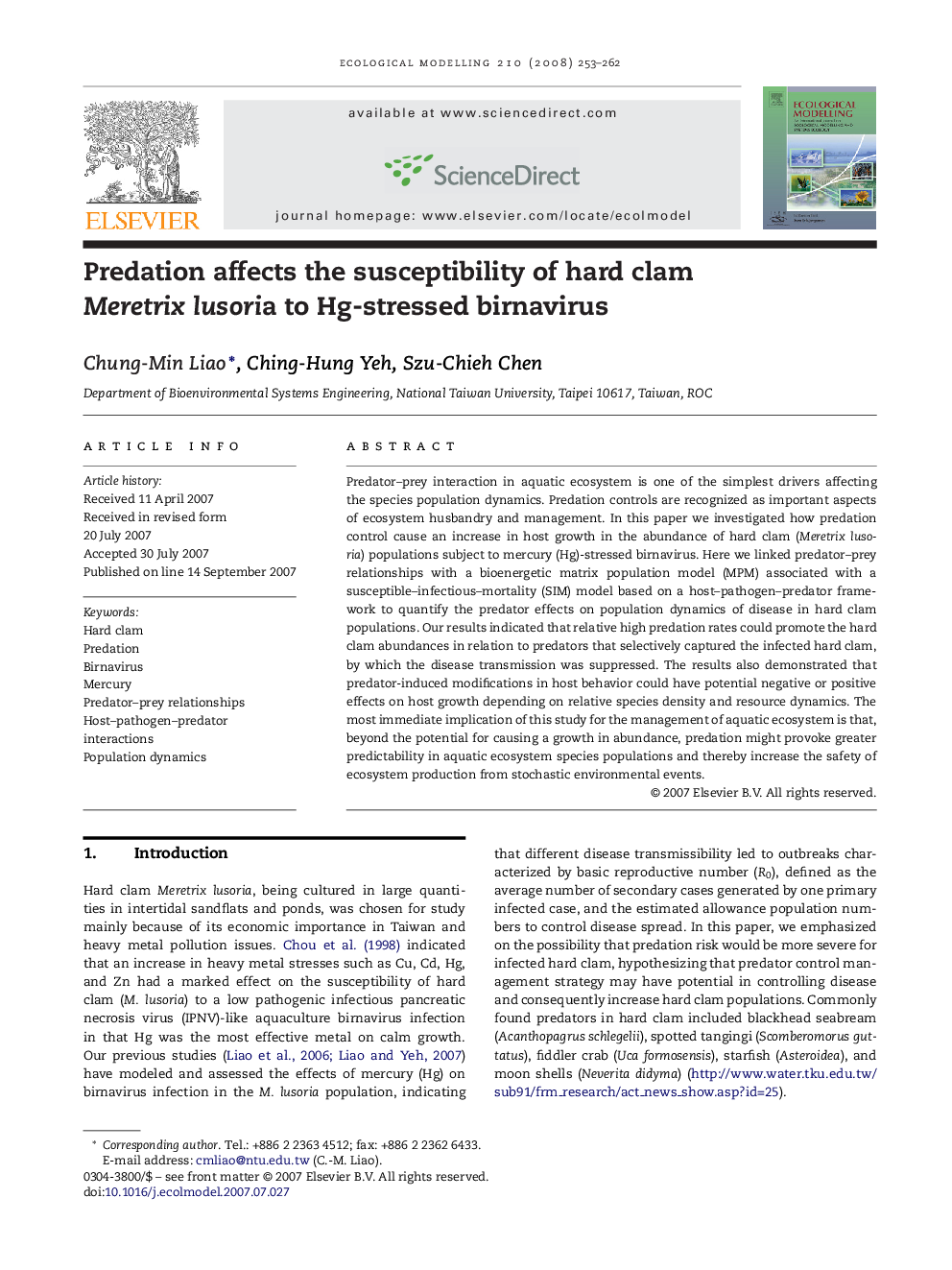| کد مقاله | کد نشریه | سال انتشار | مقاله انگلیسی | نسخه تمام متن |
|---|---|---|---|---|
| 4378389 | 1303476 | 2008 | 10 صفحه PDF | دانلود رایگان |

Predator–prey interaction in aquatic ecosystem is one of the simplest drivers affecting the species population dynamics. Predation controls are recognized as important aspects of ecosystem husbandry and management. In this paper we investigated how predation control cause an increase in host growth in the abundance of hard clam (Meretrix lusoria) populations subject to mercury (Hg)-stressed birnavirus. Here we linked predator–prey relationships with a bioenergetic matrix population model (MPM) associated with a susceptible–infectious–mortality (SIM) model based on a host–pathogen–predator framework to quantify the predator effects on population dynamics of disease in hard clam populations. Our results indicated that relative high predation rates could promote the hard clam abundances in relation to predators that selectively captured the infected hard clam, by which the disease transmission was suppressed. The results also demonstrated that predator-induced modifications in host behavior could have potential negative or positive effects on host growth depending on relative species density and resource dynamics. The most immediate implication of this study for the management of aquatic ecosystem is that, beyond the potential for causing a growth in abundance, predation might provoke greater predictability in aquatic ecosystem species populations and thereby increase the safety of ecosystem production from stochastic environmental events.
Journal: Ecological Modelling - Volume 210, Issue 3, 24 January 2008, Pages 253–262